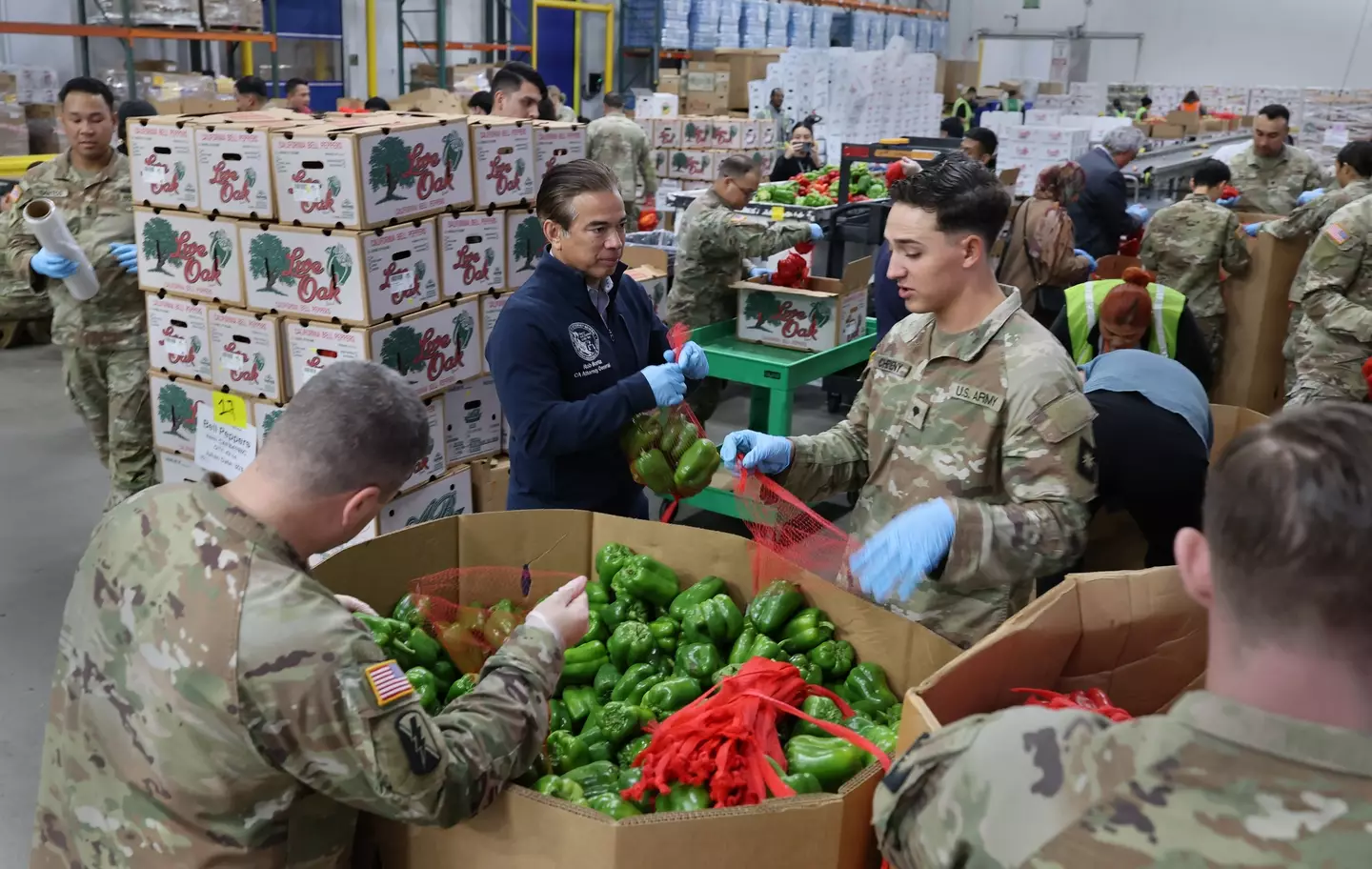
Millions of Americans could be forced to go without next month due to critical food aid payments being halted amid the ongoing government shutdown.
Still colloquially known as the Food Stamp Program, the Supplemental Nutrition Assistance Program (SNAP) helps people pay for groceries and purchase essential goods.
More than 40 million people from low-income families nationwide benefit from the program - that’s one in eight US citizens, per the BBC.
A family of four receives $715 per month on average from SNAP, according to the Center on Budget and Policy Priorities (CBPP).
Advert
However, as confirmed by the Agriculture Department, the ‘critical lifeline’ for so many people is set to be suspended amid the government shutdown, which enters its 31st day today (31 October).
On Saturday (1 November), welfare payments are expected not to be issued.
The result of this is millions of benefit recipients potentially not receiving their bursary via reloadable debit cards.
The decision comes after the Trump administration declined to draw on a contingency fund that would have saved payments, claiming this needed to be preserved for potential emergencies, such as natural disasters.
Despite warnings from the federal government that they will not be reimbursed, some states have pledged to cover any shortfall.
Others are directing their state's National Guard to help facilitate donations, while Democratic leaders from 25 states have confirmed they would file legal action against the Agriculture Department.
Other states, including Florida, have said their SNAP recipients will lose benefits if the federal government doesn’t intervene before the weekend.

Speaking about SNAP’s jaw-dropping suspension, a Department of Agriculture spokesperson blamed Senate Democrats for the funding running dry.
"We are approaching an inflection point for Senate Democrats,” a spokesperson told NBC.
"Continue to hold out for healthcare for illegals or reopen the government so mothers, babies, and the most vulnerable among us can receive timely WIC and SNAP allotments," the spokesperson continued, referring to an exclusive supplemental nutrition program set up for women, infants, and children.
Pennsylvania's Department of Human Services has countered, blaming Republicans in Washington for both the shutdown and the cessation of SNAP benefits, as per a notice.
With funds unlikely to be replenished until the government shutdown is over, many Americans are expected to turn to food banks, soup kitchens, and the Feeding America meal program for food aid.
Nelle Miller, CEO of All Faiths Food Bank in Sarasota, Florida, has slammed the SNAP cut, claiming that ‘receiving food is an inalienable right’.
“You’re born on Earth, there’s enough food here to feed everyone. It’s a distribution problem,” she told the BBC.

“I just can’t imagine denying food, water, or air to any human being. This is really difficult, it’s very distressing.”
Hanna Garth, a Princeton University professor who studies food insecurity, also told the BBC: “Many users make very little money, even though they work.
“And so it becomes this critical lifeline that keeps families out of deep, deep poverty. It can also be the tipping point that moves some families above the poverty line.”
Unfortunately, it isn’t just food assistance that the government shutdown has affected.
Thousands of Americans who work for the federal government as civilian employees are missing paychecks, as well as air traffic controllers.
FBI investigations have been stalled amid the second-longest government shutdown in US history, with operational travel funds stalled.
“President Trump has repeatedly called for the federal government to reopen and the FBI fully concurs with that position," an FBI spokesperson told Reuters.
"As Director [Kash)]Patel has previously stated, this shutdown puts the FBI in an extremely difficult position of reallocating already limited resources across numerous critical law enforcement efforts ... there is no doubt that those choosing to play politics with government funding are putting national security at risk.”
When contacted for comment, a USDA spokesperson told FOODbible: “We are approaching an inflection point for Senate Democrats. Continue to hold out for the Far-Left wing of the party or reopen the government so mothers, babies, and the most vulnerable among us can receive timely WIC and SNAP allotments.”
